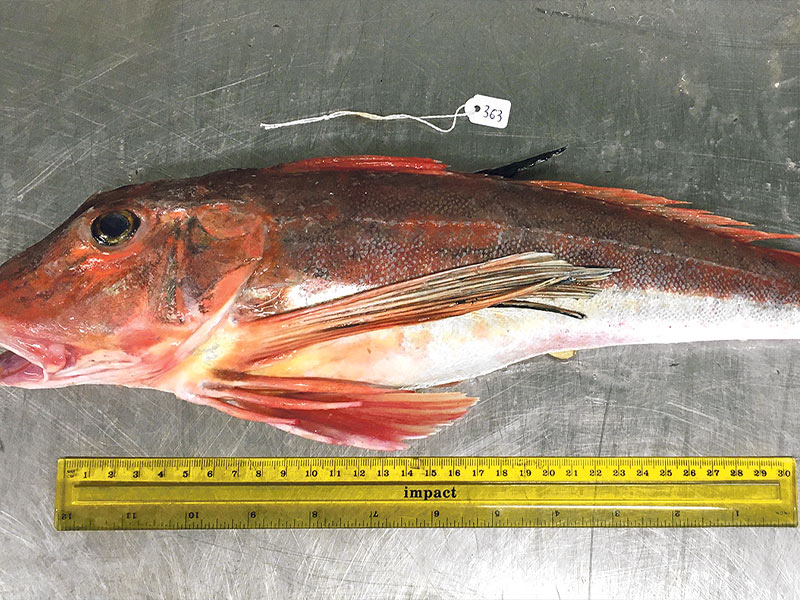Study finds microplastics in commercial fish from southern NZ
3 min read
The research looked at a sample of 155 fish destined for human consumption from 10 species. Photo: Supplied
A new study has found microplastics present in three-quarters of commercially caught fish in New Zealand’s southern water.
The University of Otago research, published in Marine Pollution Bulletin, looked at a sample of 155 commercially caught fish destined for human consumption from 10 species, including red cod and terakihi caught off the Otago coast.
Fish ingesting microplastics is a global issue, and species in New Zealand’s southern waters are no exception.
Lead author Isabella Clere, of the Department of Marine Science, said plastics are prevalent throughout the world’s marine ecosystems and greater awareness is needed of the implications of plastics entering the ocean environment.
“There is a lack of research on microplastic ingestion in the South Pacific, and this is the first study to examine it in commercial wild fish from southern New Zealand.
“The abundance of microplastics found could pose a risk to human health through consumption of plastic contaminated fish, but more research is needed in this area.”
Clere added that with seafood that is eaten whole, such as sardines, anchovies, and shellfish, there is a greater risk of secondary transfer of plastics. “When microplastic is ingested by fish, it moves through their gastrointestinal tract and stomach. Fish we buy from the supermarket is usually filleted, and therefore the gastrointestinal tract and stomach are removed. However, there is still potential that nano-plastics (0.001–0.1 μm) and plastic chemicals are transferred through to the fish muscle tissue which is what humans eat.”
Clere said the research on the risk of microplastics to humans is still in its early stages.
“Working with human subjects is difficult for a multitude of reasons. There have been studies that have found microplastics in human blood and placenta, so we do know that they are present. However, the implications of this we do not know yet, as this research is still in its very early stages. Across the world, scientists are looking at microplastics’ effect on the whole food chain, and how microplastics may be affecting human health, for example, cell functioning and reproduction.”

Study co-author Dr Bridie Allan, also of the Department of Marine Science, described the findings as “quite alarming”.
“Because the fish were collected over the course of a year, rather than a single time point, this suggests that the presence of microplastics in our Southern waters are a persistent feature.”
Of the 391 microplastic pieces retrieved, 98% were less than 3mm.
“We looked at a range of benthic (bottom-dwelling) and pelagic (surface-dwelling) fish and found microplastics in the guts of all species, suggesting the ubiquity of microplastics throughout all ocean layers.
“A random selection of fish guts were analysed to identify the plastic type, with the majority found to be polyethylene, viscose, polypropylene, and plastic additives. Polyethylene is the most widely used plastic and also the most prevalent found in the oceans globally.”
The findings highlighted how microplastics are not just a localised issue but a global one.
“Even in rather remote, low populated areas, there are signs of plastic contamination within fish. Due to their unique nature being a lightweight and durable material, they are transported across oceans by the wind, currents and through marine organisms,” said Clere.
“We need to take individual responsibility for the products we use, to ensure they do not find their way into any natural environment.
“The durable, strong nature of plastic, which makes it such a useful material in society, also makes it not only a local but a global environmental issue.”



